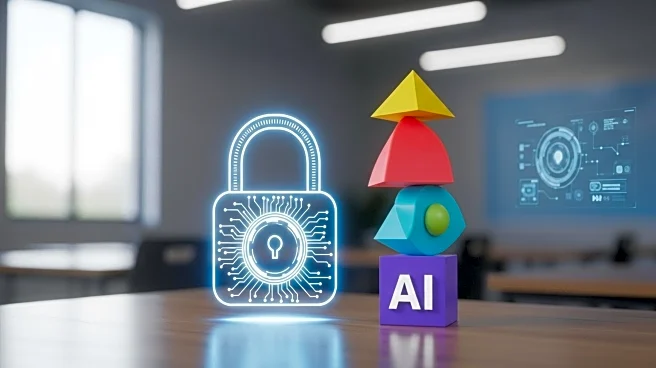What's Happening?
A recent webinar hosted by PowerSchool focused on the integration of artificial intelligence (AI) in K-12 education and the associated cybersecurity risks. Experts from Microsoft, Abnormal AI, and Secure Schools discussed the potential of AI to enhance educational operations and instruction, while also highlighting the increased vulnerability of schools to cyber attacks. The panelists emphasized the need for comprehensive cybersecurity frameworks and continuous professional development to protect sensitive student and staff data. They noted that K-12 institutions are prime targets for cyber attacks due to the large volumes of data they manage, often with limited resources.
Why It's Important?
The integration of AI in education presents both opportunities and challenges. While AI can improve educational outcomes and operational efficiency, it also exposes schools to significant cybersecurity threats. The discussion underscores the importance of balancing innovation with security, as schools must protect sensitive information from increasingly sophisticated cyber threats. The focus on cybersecurity is crucial for maintaining trust in educational institutions and ensuring the safety of student data. This issue is particularly relevant as schools continue to adopt digital tools and platforms, making them attractive targets for cybercriminals.
What's Next?
Schools are encouraged to adopt a security-first approach, integrating cybersecurity into governance, training, and vendor relationships. This includes implementing basic defenses such as multifactor authentication and unique passwords. The panelists also stressed the importance of ongoing professional learning and community engagement to foster a culture of digital safety. As AI tools become more prevalent, schools will need to carefully manage data integration and ensure ethical use of technology. Future discussions and policies will likely focus on creating sustainable frameworks for AI adoption that prioritize security and transparency.









